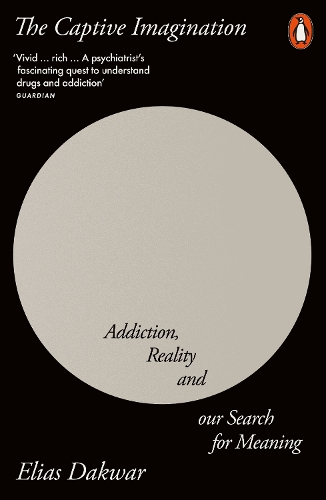
The Captive Imagination: Addiction, Reality and our Search for Meaning
(Paperback)
Available Formats
Publishing Details
The Captive Imagination: Addiction, Reality and our Search for Meaning
By (Author) Elias Dakwar
Penguin Books Ltd
Penguin
5th August 2025
1st May 2025
United Kingdom
Classifications
General
Non Fiction
Popular psychology
Psychology: the self, ego, identity, personality
362.29
Physical Properties
Paperback
400
Width 130mm, Height 200mm, Spine 23mm
294g
Description
A deeply humane and revolutionary new framework for understanding and treating addiction What causes addiction, and how should we treat it Today it is understood primarily as a brain disease, yet in this bold reimagining of addiction, pioneering psychiatrist Elias Dakwar argues that this is false. It fails to explain, among other things, why many people can enjoy drugs without developing a dependency on them. Despite decades of neuroscientific research, we aren't much closer to truly understanding the nature of addiction, nor to addressing it effectively. In The Captive Imagination, Dakwar argues that addiction is an existential challenge, requiring a more philosophical and multidisciplinary approach, as well as a lens through which we can better understand ourselves. Addiction stems from our desire for happiness- whether addicts or not, we all struggle against meaninglessness, and resort to false solutions to our despair. Dakwar also shows how our individual capacity for self-delusion relates to our collective self-inflicted crises, from environmental destruction to social injustice. Drawing on vivid stories of his own patients, path-breaking research, and decades of clinical experience, The Captive Imagination offers a novel framework for understanding and overcoming addiction, as well as human suffering more generally.
Reviews
In rich and arresting prose, and with radical originality, Dakwar expands initial, pragmatic insights about addiction into a far-reaching examination of authenticity, exploring how we define a happy life, a good life, a valid life -- Andrew Solomon, author of THE NOONDAY DEMON
A psychiatrists fascinating quest to understand drugs and addiction and to describe the indescribable... I was drawn to Dakwars vivid stories of patients and their different histories of drug use... The Captive Imagination is rich in words [Dakwar] writes lucidly of brain-based models of addiction, while making it clear that they cannot fully explain peoples experiences * Guardian *
A riveting, compassionate meditation that navigates philosophy, psychedelics, religion, biomedicine, neuroscience, critical theory, and contemporary culture with brilliant and understated insight, shedding new light on the role of fiction in addiction as well as in our existence more fundamentally. Incredibly erudite and informed, this book forces us to reconsider the nature of desire and of our capacity to undermine our own fulfillment while also offering a means of restoration -- Patricia Dailey, author of PROMISED BODIES
This book is a much-needed stabilizing force in the fraught public discourse on addiction, which relies heavily on tropes that dehumanize. Dakwar, an admirably unique psychiatrist who is before all else human, places the suffering of those afflicted with addiction in the larger context of human suffering. For that reason alone, this book is a must read -- Carl Hart, author of DRUG USE FOR GROWNUPS
This seductively written, likely landmark book about addiction and its treatments asks important and haunting questions about what Coleridge (addicted to opium yet never in doubt of his creative freedom) called the shaping spirit of a strong imagination. Is even great art a condition of our endemic hunger for self-delusion How to shape the world into our truest likeness Dakwar offers brilliant insight, with a scientists originality, a physicians profound experience -- Joseph McElroy, author of WOMEN AND MEN
If depression was the word for a previous generation, addiction is certainly ours to inherit. The Captive Imagination shows us the depth of our addictive passions for so much more than substancesfor comfort, for narratives, and for a feeling of control. In a world that is more and more impoverished on the level of imagination, we can only but grow more and more addictive in our search for stability, even when that can only be the most predictable delights and pains. Elias Dakwar shows us how to unearth and let breathe this fundamentally human will-to-be -- Jamieson Webster, Psychoanalyst and Writer
Author Bio
Elias Dakwar is an associate professor of psychiatry at Columbia University and a practising psychiatrist, working primarily with people suffering from addiction. He has been investigating novel treatments for addiction for over a decade, and most recently his research has focused on combining ketamine, meditation and psychotherapy to disrupt substance abuse disorders. His work has been published in numerous medical and academic journals, and he has spoken at conferences around the world.
